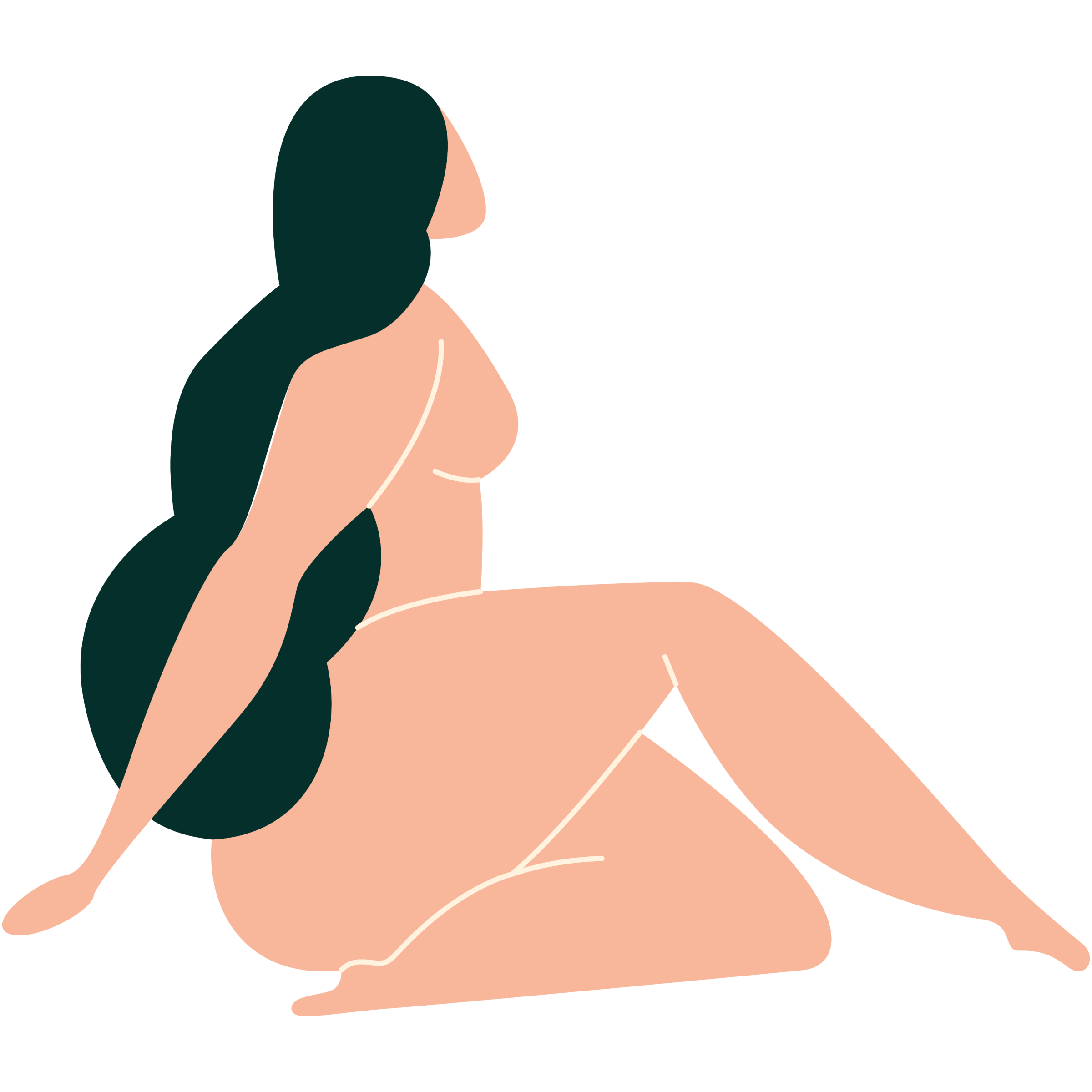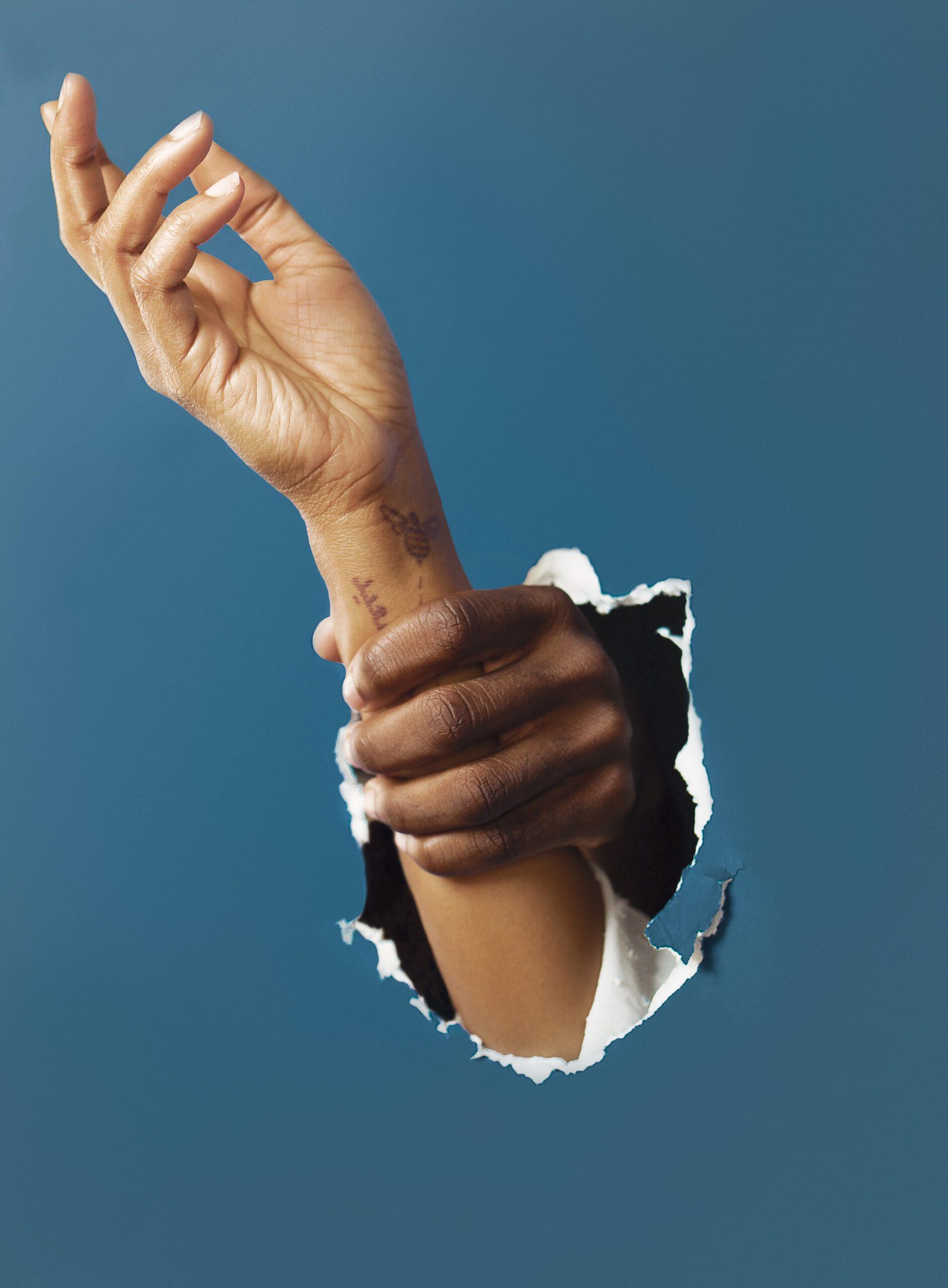
Body
Get to know your body through a better understanding of your anatomy and find the answers to some of your most common questions.

It’s almost impossible to generalize the experience of Arab women; to say that an Egyptian woman’s experience is the same as that of a Saudi or Lebanese woman’s experience. That’s something all of us seem to be able to agree on.
Something else we’re all able to agree on is the fact that there is, however, one thing that unites all of us, across all 22 Arab countries, regardless of where we’ve been raised or what our religious or socio-economic background is. Indeed, one statement that rings true for Arab women across the world is the fact that we’ve grown up with the messaging that our bodies, sexuality, and pleasure are “3eib”, or shameful.
From a young age, we are taught that our genitals are off limits; we are told to hide our periods; we are fed lies about virginity; we are instructed to ignore desires; and the list goes on. With nowhere to turn to ask questions and no access to education, women are left to navigate and absorb the impact of this stigma on the most important relationship we’ll ever have: our relationship with ourselves and our bodies.
It’s important to note that, while our culture carries its own unique set of characteristics and messages, war has been waged against female bodies around the world. From Los Angeles to Seoul, look closely and you will find cultural messages that pit women against their own bodies. Depending on where we live or where we come from, we’re too thin or too fat, too short or too tall, too dark or too white. Indeed, around the world, women are held to impossible standards and moving goal posts.
If all of this rings true to you, then you might also be familiar with the very real, very felt impact that this stigma has on our perception of ourselves and our bodies. Here are just a few of the ways the shame around female bodies and sexuality has impacted (and continues to impact) us to this day.
There comes a point when the voice that has taught us shame (whether it came from someone in our family, in our society, at school, or on TV) becomes internal, so much so that it’s hard to tell it apart from our own voice. We start to police ourselves without the need for any external involvement to make sure that we stay in line with what is socially acceptable and expected of us. Negative self-talk, constant self-monitoring, and the inability to shake the feeling that you’re doing something wrong are all manifestations of this.
Taught to shut off from it for so long, we grow up to be disconnected from that part of our bodies and ourselves, to the point where many of us are too embarrassed to even look at our most intimate parts. Have you ever looked at your vulva in a mirror? What feelings does it evoque for you?
This lack of awareness and connection can have lasting negative consequences that impact everything from our body image to our understanding of intimacy to our ability to have children.
Our cultural norms and the absence of sexual education programs in most Arab countries mean that many of us still don’t know how to correctly label our sexual and reproductive organs to this day, or what they look like, or how to care for them.
This impacts our ability to tell if something is wrong and to communicate that to a doctor if needed. In a survey we conducted of our Instagram audience, 1 in 2 women agreed that shame has stopped them from seeking medical help or seeing a doctor or speaking out when they’re in pain.
1 in 2 women agreed that shame has stopped them from seeking medical help or seeing a doctor or speaking out when they’re in pain.
As women, we've been made to feel like something is wrong with our bodies by various industries, from plastic surgery to porn. And if the only vulvas and breasts you’ve seen are in porn or Hollywood movies, chances are you’re going to feel like something is, indeed, wrong with you.
Eating disorders, labiaplasty, breast augmentation, and crash diets are all manifestations of this same desire to conform to what we’ve been told is expected or preferred.
Cultural norms and religious beliefs often perpetuate the notion that women's sexual desires and pleasures are immoral or taboo. This leads to a suppression of natural sexual inclinations, causing us to internalize shame and view our own desires and pleasure as something to be hidden or denied. The lack of open and honest dialogue about female sexuality further perpetuates this cycle of shame, inhibiting us from fully embracing and understanding their own bodies and desires.
This can also lead to the internalized belief that our pleasure is secondary to that of our partner, leading to a diminished sense of sexual agency and satisfaction.
If I carry a condom, will that make me seem like an easy girl? If I ask him to wear one, will it make me seem too difficult?
If I say no, will he get upset? Will he tell my family?
The fact that we, as women, are not empowered to make our own choices and are held responsible for the honor of our families leaves little room for us to learn and express our own boundaries.
These are just a few of the ways that this shame continues to impact us as adult women to this day, but there are plenty more. As a journaling exercise, we encourage you to ask: How has shame impacted how I perceive my own body and sexuality?
Arabic word for “shame”. It is often used to impose a set of socially-mandated behaviors and expectations.
Did you find the answer you were looking for? Is there something we missed? What did you think of this resource? We want to hear from you.
